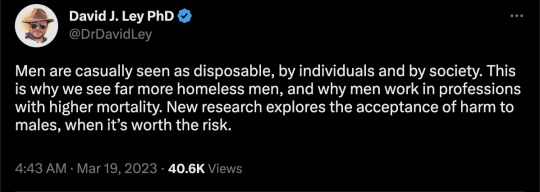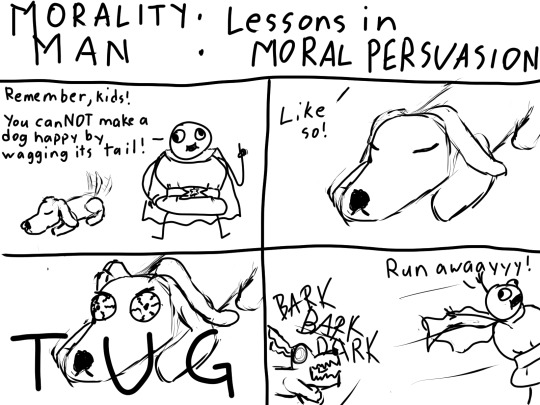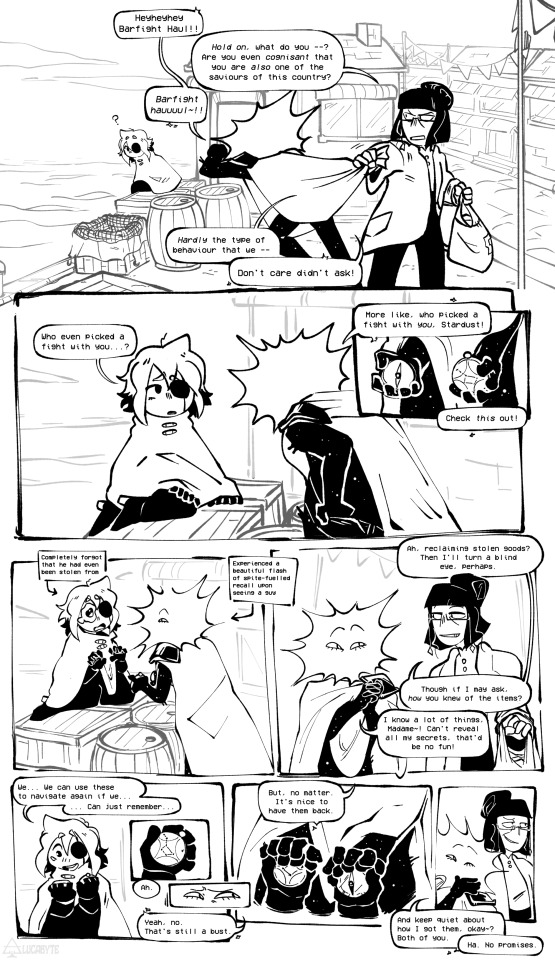#moral psychology
Explore tagged Tumblr posts
Text
The cost of sanity in this society, is a certain level of alienation.
Terrence McKenna, Source Unlisted.
#philosophy tumblr#philoblr#philosopher#american philosophy#author#mystic#terrence mckenna#sanity#moral psychology#mental depth#dark academia#life quotes
164 notes
·
View notes
Text
The Philosophy of Praise and Blame
The philosophy of praise and blame explores the ethical, psychological, and social dimensions of attributing moral responsibility to individuals for their actions. Praise and blame are fundamental aspects of moral judgment, where praise is the approval or commendation of a person for their good actions, and blame is the disapproval or criticism of someone for their bad actions. Philosophers investigate the conditions under which praise and blame are justified, the implications of these judgments for moral agency, and their role in shaping human behavior and social norms.
Key Concepts in the Philosophy of Praise and Blame:
Moral Responsibility:
Attribution of Responsibility: Praise and blame are closely tied to the concept of moral responsibility. Philosophers debate what it means to hold someone morally responsible for their actions and under what conditions this is appropriate. This involves questions about free will, intentionality, and knowledge.
Free Will and Determinism: One of the central issues is whether individuals have free will and thus can be justifiably praised or blamed for their actions. If determinism is true, and all actions are the result of prior causes, the basis for moral responsibility—and hence praise and blame—may be called into question.
Conditions for Praise and Blame:
Intentionality: For praise or blame to be appropriate, the action in question typically needs to be intentional. Accidental actions or actions taken under compulsion may not warrant praise or blame in the same way.
Knowledge and Understanding: The agent’s knowledge of the consequences of their actions and their understanding of the moral principles involved are also important. Ignorance or misunderstanding might mitigate blame or enhance praise depending on the circumstances.
Praise:
Recognition of Virtue: Praise is often seen as a way of recognizing and encouraging virtue or morally good behavior. It can reinforce positive actions and promote the development of good character traits.
Social and Psychological Effects: Praise can have significant social and psychological effects, fostering self-esteem and motivating individuals to continue acting in morally commendable ways. It also strengthens social bonds and reinforces communal values.
Blame:
Moral Censure: Blame serves as a form of moral censure, signaling that a person’s actions have violated ethical standards. It can be a way of holding people accountable and deterring future wrongdoing.
Blame and Punishment: In some philosophical traditions, blame is linked to the justification of punishment. If someone is to be blamed for an action, it may be argued that they deserve to be punished in proportion to the harm they have caused.
The Ethics of Praise and Blame:
Fairness and Proportionality: Philosophers debate the fairness of praise and blame, particularly whether they are proportionate to the actions being judged. There is also discussion about whether praise and blame should be distributed equally among all those responsible for a collective action or unequally based on individual contributions.
Moral Luck: The concept of moral luck complicates the ethics of praise and blame, as it raises questions about whether individuals should be praised or blamed for actions influenced by factors beyond their control.
Philosophical Theories:
Consequentialism: In consequentialist ethics, praise and blame are often viewed in terms of their effects on future behavior. Actions that lead to good consequences may be praised to encourage repetition, while those leading to bad outcomes are blamed to discourage them.
Deontological Ethics: In deontological theories, such as Kantian ethics, praise and blame are more focused on the agent’s intentions and adherence to moral duties, regardless of the consequences.
Virtue Ethics: From the perspective of virtue ethics, praise and blame are tools for cultivating virtuous character traits. Praising good actions and blaming bad ones help individuals develop virtues and avoid vices.
Social and Cultural Contexts:
Cultural Relativism: The criteria for praise and blame can vary significantly across cultures. What is considered praiseworthy in one culture might be neutral or even blameworthy in another, leading to questions about the universality of moral standards.
Collective Praise and Blame: In social and political contexts, entire groups or communities may be praised or blamed for collective actions. This raises ethical questions about the fairness of attributing responsibility to individuals for the actions of the group.
Criticisms and Limitations:
Overemphasis on Moral Judgment: Some philosophers argue that too much focus on praise and blame can lead to an overly judgmental society, where individuals are constantly evaluated rather than understood.
Blame and Shame: The relationship between blame and shame is also a topic of discussion, particularly how blame can lead to destructive feelings of shame, which may not contribute to moral improvement.
The philosophy of praise and blame is central to understanding moral responsibility and ethical behavior. These practices play crucial roles in shaping human actions, reinforcing social norms, and cultivating moral character. Philosophical inquiry into praise and blame involves examining the conditions under which they are justified, their ethical implications, and their impact on individuals and society. By exploring these concepts, philosophers aim to illuminate the ways in which moral judgments influence our lives and our relationships with others.
#philosophy#epistemology#knowledge#learning#education#chatgpt#ethics#psychology#Praise#Blame#Moral Responsibility#Free Will#Intentionality#Ethical Judgment#Consequentialism#Deontological Ethics#Virtue Ethics#Moral Luck#Moral Censure#Social Norms#Cultural Relativism#Collective Responsibility#Moral Psychology
3 notes
·
View notes
Text


Abstract
Scientific and organizational interventions often involve trade-offs whereby they benefit some but entail costs to others (i.e., instrumental harm; IH). We hypothesized that the gender of the persons incurring those costs would influence intervention endorsement, such that people would more readily support interventions inflicting IH onto men than onto women. We also hypothesized that women would exhibit greater asymmetries in their acceptance of IH to men versus women. Three experimental studies (two pre-registered) tested these hypotheses. Studies 1 and 2 granted support for these predictions using a variety of interventions and contexts. Study 3 tested a possible boundary condition of these asymmetries using contexts in which women have traditionally been expected to sacrifice more than men: caring for infants, children, the elderly, and the ill. Even in these traditionally female contexts, participants still more readily accepted IH to men than women. Findings indicate people (especially women) are less willing to accept instrumental harm befalling women (vs. men). We discuss the theoretical and practical implications and limitations of our findings.
Introduction
The promise of achieving “the greater good” has inspired numerous interventions designed to move society toward presumably desirable ends. Companies develop and market products to improve quality of life, organizations introduce policies to improve employees’ workplace experiences, and educators implement practices to improve learning outcomes. These interventions are frequently justified by claims that the benefits to many outweigh the potential harms to a few—a moral argument consistent with a utilitarian ethical framework.Footnote1
A utilitarian approach to morality accepts inflicting harm onto some people if doing so increases the sum total of human happiness and well-being (e.g., Mill, 1861/2010; Singer, 1981, 2020). Guided by the classic tenets, Kahane et al. (2018) identified two elements that reflect the negative and positive features of utilitarian reasoning. The negative dimension—instrumental harm (colloquially known as collateral damage)—gives a moral agent permission to “instrumentally use, severely harm, or even kill innocent people to promote the greater good” (Kahane et al., 2018, p. 132). Impartial beneficence reflects the positive aspect of utilitarianism, requiring prioritization of the greater good above all else. In its purest form, this element demands people ignore personal ties, family loyalties, group memberships, special preferences, and emotional impulses that compromise impartiality and achieving this greater good (e.g., Hughes, 2017).
However, people frequently depart from such prescriptive moralities (Hughes, 2017; Kern & Chugh, 2009), seldom approaching the level of impartiality required to practice utilitarianism and accept sacrifices that may contribute to the greater good. Indeed, judgments about benefit and harm are highly subjective (Schein & Gray, 2018) and even malleable (Haslam, 2016; Rozin, 1999). This subjectivity, coupled with the difficulty of achieving consensus on what constitutes the greater good, undermines impartial calculi of costs and benefits requisite for upholding utilitarian principles.
The current investigation examined one factor that might compromise the impartial evaluation of social interventions: the gender of the person who experiences instrumental harm (Instrumental Harm). Based on prior research on perceptions of harm to women and men, we hypothesized that people asymmetrically support interventions inflicting collateral harm to men versus women. Such a bias violates the principle of impartial beneficence, potentially compromising the evidence-based advancement of men and women alike. As detailed below, our predictions are rooted in extant work on gender and moral decision-making and are extended to contexts depicting low-level harm.
[...]
General Discussion
The current investigation sought to examine whether people were more willing to endorse interventions when IH was borne by men than women. Our first two studies supported this premise. Importantly, however, our results showed that this asymmetry was driven primarily by women, but not men, being more likely to accept IH to men than to women across a variety of contexts (i.e., supporting Hypothesis 2). Study 3 tested a boundary condition to this gender bias in harm tolerance: stereotypically female caregiving contexts. When instrumental harm benefitted vulnerable individuals (e.g., infants, young children, sick, or the elderly), both men and women exhibited a bias in their willingness to accept IH to men versus women (i.e., supporting Hypothesis 1; not supporting Hypothesis 3). That is, contrary to what might be expected by historical gender roles (Eagly & Wood, 1999), people believed men ought to bear greater costs, even in traditionally female sacrificial domains.
Theoretical and Practical Implications
Our findings offer four contributions. First, we extended the literature on gender and harm endorsement, which has primarily emphasized high-conflict sacrificial dilemmas involving questions of life or death (e.g., FeldmanHall et al., 2016; Skulmowski et al., 2014). The current findings revealed this gender bias persists in highly consequential, yet understudied domains: assessments of beneficial interventions carrying negative externalities across a variety of contexts: medical, psychological, educational, sexual, and caregiving. Second, we demonstrated that when evaluating interventions, female participants were more likely than male participants to accept IH borne by men than women. This pattern lends further support to the well-documented finding that women have a stronger in-group bias than men (e.g., Glick et al., 2004; Rudman & Goodwin, 2004) and are more likely to perceive one another as victims than perpetrators (Reynolds et al., 2020). This disparity suggests women may prioritize one another’s welfare over men’s in the construction or approval of social, educational, medical, and occupational interventions. If so, female policymakers might be especially wary of advancing policies or initiatives risking harm to other women, but less so when they risk harming men.
Third, we tested a boundary condition to this gender bias by investigating contexts previously unstudied in sacrificial dilemmas: stereotypically female caregiving roles. Although consideration of gender stereotypes and role congruence (Eagly & Wood, 1999) might predict a greater tolerance for female sacrifice in such contexts, men and women alike were more tolerant of IH incurred by men (versus women). These patterns suggest that although women traditionally fill and sacrifice in these roles, people may not necessarily endorse that ought to be the case. Rather, our results align with emerging evidence documenting diminished concern for men’s suffering due to a greater tendency to stereotype men as perpetrators rather than victims (Reynolds et al., 2020).
Fourth, our findings identified individual-level factors that contribute to asymmetries in harm tolerance. Namely, Studies 2 and 3 revealed that individuals more strongly endorsing egalitarian, feminist, or liberal ideologies exhibited greater disparities in their acceptance of instrumental harm, such that they more readily tolerated instrumental harm borne by men. These patterns suggest those most concerned about rectify- ing historical injustices might most ardently oppose explora- tory interventions potentially providing long-term benefits to women.
[ Via: http://doi.org/10.1007/s10508-023-02571-0 ]
==
Must be all their male privilege.
#science#male disposability#gender bias#implicit bias#women and children first#the greater good#moral psychology#morality#human psychology#male suicides#male privilege#religion is a mental illness
21 notes
·
View notes
Text
Homophobes often rationalize their bigotry by focusing on how disgusted they feel when they imagine gay sex. Racists in the Southern US rationalized opposing interracial marriage by focusing on how disgusted it made them feel to imagine Black men with white women.
Feeling disgusted is a terrible argument for moral condemnation.
Disgust has absolutely no ethical weight. If you are basing your ethical positions on the emotion of disgust you should stop, it is entirely unjustified and leads to a huge amount of harm.
#important#social justice#psychology#bigotry#reactionary politics#politics#ethics#yuck factor#disgust#emotions#moral psychology#queue#original content#(in that i added to the post)
130K notes
·
View notes
Text
Also, there is so much hand-wringing over the ethics of BDSM and while obviously it is worth taking care about ...sensation seeking is a thing. Many, many people enjoy eating habanero peppers and/or watching movies that make them cry. The conceptual leap from there to the idea that it's possible for sex to hurt good is a very short one, and sometimes it REALLY is as simple as that.
#like yes there are power dynamics as with many things including non-kinky sex and many activities completely unrelated to sex#yes sometimes there IS complicated psychological stuff being played with#but also. it is worth asking if you're working yourself into a froth because some people enjoy spicier salsa than you do#and also whether you wanna die on the hill that straight women aren't allowed to enjoy spicy salsa#normal ≠ moral#my posts#habanero salsa tag
20K notes
·
View notes
Text

Moral Persuasion: the concept of appealing to someone's ethical and moral opinions to change his or her behavior and/or attitudes, rather than solely using hard facts and logic.
0 notes
Text
Best post I've seen on the topic of "deserving" and the justification of killing.
re: that last post, ive said it before and ill say it again: no one deserves to die (deserving is fake and death is bad) but some people need to be stopped and choose to make death the only way to stop them
#important#ethics#psychology#moral psychology#universal compassion#social justice#deserving#discourse#folk ethics#reactionary politics#dehumanization#bigotry#disgust#emotions#tw pedophila mention#tw death#queue
92K notes
·
View notes
Text

siffrin starts the game with oddly empty pockets for a rogue who has a habit of stashing away every little trinket that isn't nailed down
and a hardy pocketwatch is an indispensable tool for oceanic navigation
#loop slinking off from the other half of the party to go jump a random rival rogue before The Morality Squad can get on their ass#anyway this is once again me playing with How To Do Comics Literally At All. no real deeper message just a random ficlet basically#ALSO YEAH. MAP MEN LINK. YOU FIND ANOTHER CONSISE EXPLAINER ON THE CHRONOMETER LOL#isat#isat fanart#in stars and time#in stars and time fanart#isat spoilers#sifloop#isat siffrin#isat odile#isat loop#lucabyteart#the compass is there mostly to make the pocket watch navigation thing more obvious + because i like the staging of loop presenting 2 items#big dipper/polaris is the most basic choice to get across NAVIGATORY USE OF CONSTELLATIONS but . beggars cant be choosers#also the return of the Vague Postcanon Loop Outfit. love to just put them in a vague toga or whatever.#implication wrt odile's questioning is they still havent come clean about anything. but she's got suspicions.#theyre playing Truth Confession Chicken. psychological warfare#+ bonus artist's insight: loop odile up top there is me channelling the pop team epic GOGOGO DANGER ZONE comic#[odile voice] careful. danger zone. [loop voice] but i love danger zone.......
2K notes
·
View notes
Text
Saturn has 83 moons. 63 moons are confirmed and named, and another 20 moons are awaiting confirmation of discovery and official naming.
This is their dynamic visualization while they travel with Saturn through space
#physics#astronomy#science#quantummechanics#quantum mechanics#stoicism#society#psychology#ethics#morality
1K notes
·
View notes
Text
What looks like politics, and imagines itself to be political, will one day unmask itself as a religious movement.
Soren Kierkegaard, Source Unlisted.
#philosophy tumblr#philoblr#danishphilosopher#danish philosopher#philosopher#soren kierkegaard#politics#religion#metaphysics#democratic party#republicans#moral psychology#dark academia#life quotes
4 notes
·
View notes
Text
That's probably because the concept of moral accountability usually means making someone suffer as much as you think they “deserve,” which is itself nonsensical window dressing to rationalize taking revenge out of vindictive anger
"hold accountable" is such a funny nonsense phrase.... the way people use it on the internet it could literally mean anything or nothing
#important#philosophy#ethics#universal compassion#deserving#discourse#moral responsibility#accountability#revenge#anger#moral psychology#psychology#queue#original content
138 notes
·
View notes
Note
hello! platonic aventurine,blade,jing yuan and sunday with a teen!reader like akane kurokawa?
reader is a genius actress specializing in theater, but theyre also like a detective, theyre able to accurately psychoanalyse and understand what happened
The Art of Perception
Tags: Aventurine x Reader, Sunday x Reader, Blade x Reader, Jing Yuan x Reader, Teen!Reader, Actor/Actress and Detective!Reader, Akane Kurosawa based Reader, Platonic Relationships, Mentorship, Psychological Insights, Mystery Solving, Mutual Respect.
Warnings: Themes of moral ambiguity, mentorship dynamic, light tension.

In the dazzling world of high-stakes gambling, where the clatter of roulette wheels and the shuffle of cards formed the rhythm of life, you—a teen with an uncanny gift for psychoanalysis—had caught the eye of none other than Aventurine.
You weren’t just a rising star in the theater world; your ability to dissect human behavior and unravel complex situations had earned you comparisons to seasoned detectives. Aventurine wasn’t drawn by your fame—he was intrigued by your mind. A meeting between the two of you was inevitable.
The setting was an exclusive gala hosted by the IPC. You were invited to entertain the guests, performing an intricate one-act play. Aventurine, lounging by the roulette table, observed you with mild curiosity as you captivated the audience with a performance that seemed almost too real.
After the applause subsided, Aventurine approached you with his trademark grin.
"Bravo! That was a performance worth betting on. But tell me, little star, how much of that was acting, and how much was you?"
You tilted your head, studying him for a moment. "Both," you replied with a small smile. "Acting is just another way of understanding people, isn’t it? And you—" Your gaze narrowed. "—you’re a gambler, but you’re not here to win money. You’re here because the stakes are higher than anyone realizes."
Aventurine chuckled, the sound as smooth as a well-played bluff. "Impressive. Few can read me like an open book. What gave it away?"
"The way you observe people," you replied. "You’re not watching for their weaknesses. You’re watching to see if they’ll play the way you want them to."
For the first time in years, Aventurine felt genuinely caught off-guard. He saw potential in you—a spark that reminded him of his own strategic brilliance. What began as a chance encounter turned into a mentorship of sorts, with Aventurine teaching you the art of calculated risk, while you offered him insights into human nature he hadn’t considered before.

A dimly lit alley on a forgotten world was no place for a theater prodigy, but you weren’t here for a performance. You were here to solve a mystery—the disappearance of several citizens. What you didn’t expect was to cross paths with Blade, the Stellaron Hunter.
You had been tracking clues all day, your sharp mind piecing together fragments of the puzzle. When you finally encountered Blade, standing amidst the ruins of an old theater, your first instinct wasn’t fear but curiosity.
"You’re not the one taking them." you said, your voice calm despite Blade’s menacing aura.
Blade turned, his eyes narrowing. "And you’re not afraid of me. Why?"
You stepped closer, your gaze unwavering. "Because you’re not here to harm me. You’re here because you’re looking for someone."
Blade remained silent, intrigued by your audacity. You continued, "You carry guilt. It’s written all over you—in the way you stand, the way you avoid looking at me directly. You think saving these people will make up for something, don’t you?"
Blade’s fist tightened. "You talk too much."
"And you don’t talk enough," you countered. "But that’s okay. I don’t need words to understand you."
Despite himself, Blade found a reluctant respect for your insight. As you worked together to uncover the true culprit behind the disappearances, Blade began to see you as more than just a curious child—you were a mirror, reflecting parts of himself he thought he’d buried long ago.

The grand chambers of the Xianzhou Luofu were no stranger to visitors, but a teen with the reputation of a genius actor/actress was a rare sight. Jing Yuan had invited you personally after hearing of your knack for solving mysteries.
He reclined in his seat, eyes half-lidded as you entered. "Ah, the prodigy arrives. Tell me, do you only act on stage, or is this entire visit a performance?"
You smirked. "That depends. Are you genuinely curious, or are you testing me?"
Jing Yuan chuckled, impressed by your sharpness. "I see the rumors didn’t exaggerate. Let’s skip the pleasantries. I have a problem—someone within the Cloud Knights has been leaking information. I’d like you to uncover who."
You accepted the challenge, diving into the task with meticulous care. As you interviewed suspects and analyzed behavior, Jing Yuan observed you closely, marveling at your ability to draw conclusions from the smallest details.
In the end, you revealed the culprit with a flourish, your explanation as captivating as any play. Jing Yuan smiled, a rare expression of genuine admiration. "You’ve done well. Perhaps the next time we meet, I’ll challenge you to a game of chess."
"I’ll win." you replied confidently, earning another chuckle from the general.

The Charmony Festival was in full swing, a celebration of art and music orchestrated by Sunday himself. Among the performers was you, a teen actor/actress whose fame had reached even the distant skies of Penacony.
Sunday approached you after your performance, his eyes gleaming with interest. "Your talent is remarkable," he said. "But I sense there’s more to you than what you show on stage."
You regarded him carefully, noticing the subtle tension behind his serene demeanor. "And you’re not just a festival organizer. You’re hiding something, aren’t you?"
Sunday’s smile faltered for a moment before he recovered. "Perceptive. I see why they call you a genius."
As the festival continued, you found yourself drawn into Sunday’s world, uncovering the truth behind the Sweetdream Paradise. Your sharp mind clashed with Sunday’s idealism, leading to long debates about humanity’s capacity for growth and the morality of.
Despite your differences, Sunday grew to respect your unwavering determination and intellect. In you, he saw a kindred spirit—someone unafraid to challenge the status quo, even if it meant standing against him.

#x reader#honkai star rail#hsr#honkai star rail x reader#hsr x reader#hsr aventurine#aventurine x reader#hsr aventurine x reader#aventurine x you#blade honkai#blade hsr#blade x y/n#blade x reader#hsr blade#sunday x reader#sunday hsr#hsr sunday#sunday#jing yuan honkai star rail#hsr jing yuan#jing yuan x you#jing yuan x reader#teen reader#platonic relationships#mentorship#psychological insights#mystery solving#mutual respect#themes of moral ambiguity#light tension
240 notes
·
View notes
Text
lando liking hate comments on his instagram…brother put the phone down. take a deep breath. call a friend.
#send an angry email to your team demanding why they’ve hung you up to dry psychologically#and are perfectly happy to roll you out for morality points but don’t actually give a shit about your clearly deteriorating MH otherwise#don’t get me wrong I am a hater but also im human and I do. I do worry. especially since the evil orange team seems to be happy to profit#off his struggles and publicise them without giving him any tools to cope with a. mental health itself in an elite sport and b. having that#public#atheletes who talk about mental health have usually done a massive amount of work to be prepared for it#whereas mclaren seem perfectly happy to just ship lando off to the wolves#yes I may be a hater however I think lando is a product of his environment and it’s an environment that only cares ab their image not him#anti mclaren#lando Norris this once I defend you
227 notes
·
View notes
Text

doodle comic i made just before beating VLR. not to worry, I Know Now :)
#zero escape#zero escape spoilers#virtues last reward#virtues last reward spoilers#virtue’s last reward#virtue’s last reward spoilers#<-I FOUND OUT SOMETHING RLY BAD ABOUT THE TAGS FOR THIS GAME. I GOT SPOILED ON SOME STUFF BC OF THIS…#vlr#vlr spoilers#I could make an obnoxiously long post abt my thoughts but the short version is I liked it better than 999#there were more loose plot threads but the characters and story were more compelling#and it hit some favorite tropes like Robot Psychology and Well Developed Morally Grey Characters#phi here is channeling Me. i was playing with friends so the whole time I was loudly theorizing#some stuff I got some stuff I completely missed and some theories I was p confident in were Completely Wrong lol#but it was a fun time :) sigma and akane i will think about you forever
371 notes
·
View notes
Text

You were born bluer than a butterfly Beautiful and so deprived of oxygen Colder than your father's eyes He never learned to sympathize with anyone
I don't blame you But I can't change you Don't hate you But we can't save you
You were born reaching for your mother's hands Victim of your father's plans to rule the world Too afraid to step outside Paranoid and petrified of what you've heard
(But they could say the same 'bout me)
[Blue by Billie Eilish]
#dramione#draco malfoy#hermione granger#fanfiction#books and libraries#draco x hermione#fanfic#draco and hermione#hogwarts#books and literature#draco malfoy x hermione granger#love#i love him#romance secret#secret#romance#harry potter#billie eilish#blue#music#friends to lovers#enemies to friends#slow burn#secrets and masks#manacled#psychological trauma#morally gray Hermione Granger#morally gray Draco Malfoy#Death Eater Draco Malfoy
300 notes
·
View notes
Text
TBOB has actually really interesting insights onto Bill's character and his relationship with Ford/how he sees himself in him
bc now we know that Bill actually DIDNT want to destroy his home dimension, and had a family he cared about... but then after that, he fell in with a crowd (his Henchmaniacs) that were all angry and spiteful towards their worlds, and had no families (they are all either orphans or hate their families), and they hear that Bill destroyed his 'oppressors', and for the first time in his life Bill hears "wow your differences actually make you COOL and HELPFUL"
and over time 'revenge' starts to mean 'blowing up anyone that doesn't like us' and 'accidentally destroyed his dimension' becomes 'liberated his dimension' and 'i have no one' becomes 'i dont need anyone!'- but the nightmare dimension is Unstable and falling apart and Bill has to Keep The Party Going or else he loses all his coolness and all his power
And then he tries and tries to manipulate people into building the portal but it all fails bc he actually sucks until he meets Stanford Pines, who is so easy to manipulate because Bill knows exactly what he wants to hear because its what he himself wanted to hear...and Ford is bitter and vengeful and that makes Bill start to consider him as more than a pawn, possibly even a henchmaniac, he tells him about how DEVASTATED he was to lose his home dimension, even if he went 'no contact' with them and was an outcast and an Other, he still misses home...
...and so when ford finds out the portal will destroy his home, of COURSE he turns around and thinks about his family, even though he 'doesnt have anyone'. Bill expects Ford to enable him, as all the other henchmaniacs did, but Ford stands up to him and it triggers Bill so badly because he sees this man as basically who he was at the beginning and it challenges the image of himself he's built in his mind, because he KNOWS back then that he wouldnt have destroyed his own dimension on purpose! And the only thing he knows how to do anymore is to crush anything that hurts him, because unlike anyone else Ford is able to hurt him.
and thats why he needs to be in therapy for basically forever
#bill cipher#tbob#the book of bill#billford#<- mainly as just an analysis of CANONNNNNN so dont even begin to have any which way of discourse ill beat you with a hammer#i find it really interesting the things that psychologically go into his actions and i actually think its MUCH better than 'hes just-#'inherently beyond human morals'#like yes 3 trillion years might do that to you but he still is a Character wirh Motivations and Flaws
174 notes
·
View notes